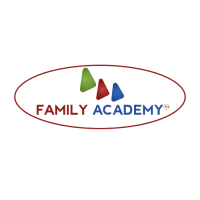By Maggie Dail, M.A.
Meet or Exceed Standards Consistent with Your Worldview
While educators are rallying around Common Core standards, do not be fooled. Learn about
what these standards intend that our children learn. For families who entrust the education of their
children to the public school system, it may seem reasonable to have standards that are common
throughout the country. Having standards that are common to other schools make moving less of a
problem for families. However, Common Core standards in the hands of public school teachers reach far
beyond the realm of authority intended by our founders or even more importantly by the Scriptures.
Our founders envisioned educational decisions being made by those closest to the school in question,
not by an unelected and unaccountable group of individuals at the national level. They wisely omitted
any reference to education in the U.S. Constitution. Scriptures place all authority for education with the
family and not at the government at any level. Deuteronomy 6:7 “And thou shalt teach them diligently
unto thy children, and shalt talk of them when thou walkest by the way, and when thou liest down, and
when thou risest up.”
Meeting standards is not the primary issue. Children are not machines and education is not an
assembly line. What we should expect from each individual must be consistent with that individual’s
ability and what God wants for that individual.
Develop Your Standards Around Your Starting Points (Presuppositions)
We may think that we do not operate from presuppositions or starting points, but we all do. We
may not be able to express them but they form the glasses though which we understand the world we live in
and our place in it. For those who have not developed their worldview, a good first step is to write
down your starting points.
For example, my starting points include:
My main purpose in life is to glorify God and to enjoy Him forever (Westminster Catechism).
God has revealed His plan for mankind and for me in His Word, the Holy Bible.
My goal is to learn His plan for me by reading and studying His Word.
Praying for guidance and help forms an important part of my life.
I am a sinner, unable to do anything of myself to please God, and Christ has paid for my sin and
called me to repentance and obedience to His Word.
All of my students need to be treated with respect. They are each unique with strengths and
weaknesses. We need to start where they are, not where another is.
Once you have developed your starting points, you may proceed to develop your worldview. In
general, a worldview can be: theistic (as illustrated with my starting points) or any number of non-
theistic views. Within a theistic worldview there are many variations, but all should begin with the
existence of God. Start with general framework and then move down to how you intend to educate your
children. Even if a family is not homeschooling, it is helpful to think through and discuss this process and
then choose the people or institutions that you will entrust with the education of your children. Families
must determine what the child needs to learn, how the child learns and what works best in your family.
Include Knowledge-Based Goals as Well as Character-Based Goals
Knowledge based goals include when to teach addition, subtraction, multiplication and division.
Other knowledge based goals include: community workers, American history, world history, science and
reading. Examples of wisdom-based goals include developing character – honesty, diligence, etc. Your
worldview may dictate which of these types of goals are more important. There are many books
available that help parents develop these goals:
What Your Child Needs to Know When by Robin Sampson
What Your ___Grader Needs to Know by E.D. Hirsch Jr.
For more information regarding Common Core Standards visit: www.hslda.org (Search: Common
Core to get recent articles on this topic.) The books listed above are available on www.amazon.com.
Further, consider Family Academy’s Able to Teach course to help you prepare for homeschooling your own.
